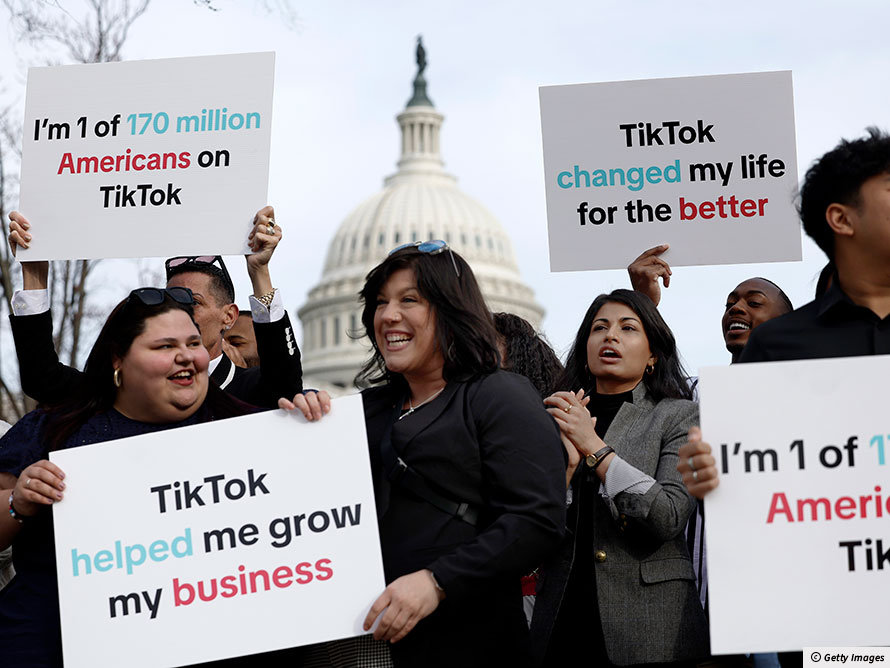Would you miss it? The US House of Representatives has voted to ban TikTok. They fear the Chinese government might use the data. Users argue a ban threatens jobs and creativity.
USA moves to ban TikTok for security reasons
 Protest: TikTok creators, above, say the proposed ban threatens lives and livelihoods.
Protest: TikTok creators, above, say the proposed ban threatens lives and livelihoods. Glossary
House of Representatives - The lower chamber of the United States congress. There are 435 representatives, with a certain number allocated to each state based on the state's population.
Propaganda - Information, which may be biased or misleading, used to promote a certain viewpoint.
Senate - The upper chamber of the Congress that - along with the US House of Representatives (lower chamber) - comprises the legislative branch of the US government. Each of the 50 US states is equally represented by two senators, regardless of its population size.
Nationalist - A person who believes strongly that their country is better than all others.
Parodies - Imitations of a situation or famous person, often intentionally exaggerated.
